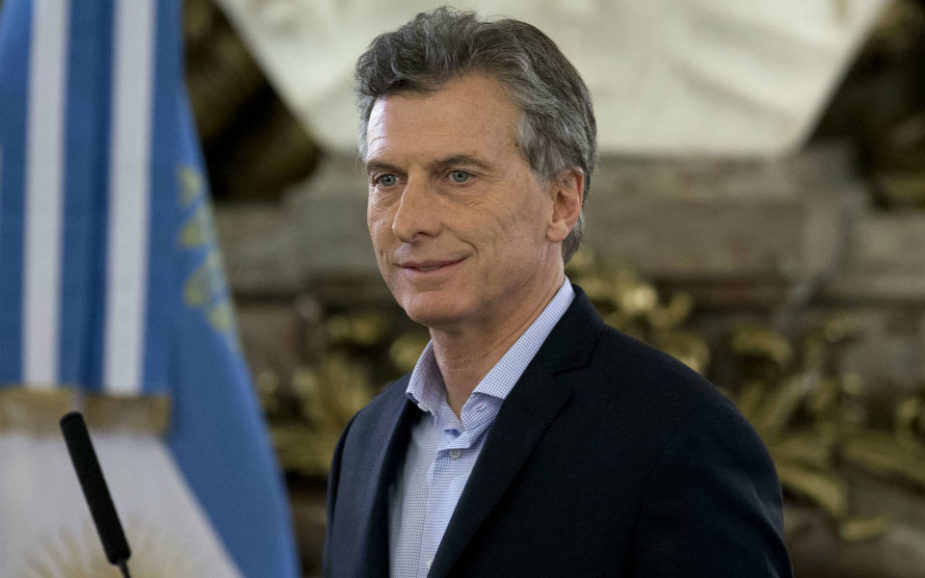Sacri asks IMF for help. What failed in Argentina?
Both economists who question the neoliberal policies of the current government, as well as the more orthodox, claim that the Argentine president faces a complicated situation.

The economic measures taken by Argentina to halt the dollar's firing last week had an effect, but they were not enough to dispel concern about the government's ability to contain inflation and prevent another peso devaluation. "The problem is that in Argentina, the rise in the dollar immediately reverts to prices and this, in turn, has an impact on inflation, which continues to be around 25% despite government promises to reduce it", said economist Alan Cibils from the National University of General Sarmiento, in an interview with Agência Brasil.
According to Cibils, the Argentines are beginning to distrust the policies of President Mauricio Macri, who set as a priority the fight against high inflation, inherited from his predecessor, Senator Cristina Kirchner. "It's been more than two years, and the cost of living is not only still high, but rising even more". Historically, the dollar in Argentina functions as a thermometer of economic performance: every time there is uncertainty, those who can, buy the US currency, as it is considered the best protection against inflation.
With the increase in demand, the value of the dollar rises and ends up being reflected in prices - even of products that are manufactured in Argentina, with local consumption, such as bread. This is what Argentinians call the index "just in case", explained Hector Politi, of Consumers Libres. "Because you're not sure if you're going to have money to replenish the stock in the future, the trader raises prices, just in case, and that creates a vicious circle".
Last week's currency rally came after the US decided to raise interest rates. Many of those who had applied money in Letters of the Argentine Central Bank (Lebacs), because they paid more than the papers of the American Treasure, did not renew the investments. "They preferred to invest in the US market because, although interest rates are still lower than the Argentine ones, the risks are lower", Cibils said. "The devaluation of the peso and high inflation make investments less attractive, and there is still a danger that Argentina will resort to measures to prevent the outflow of dollars, as it has done in the past".
To attract back the capital that was leaving the country, the Argentine Central Bank raised the benchmark interest rates from 33.25% to 40%. Although the dollar had retreated, at first, on Monday, it rose slightly again. "This measure may attract investors, who decide to renew the application for a month, or two, but last week's turbulence may come back", Cibils said. For the economist, the government's mistake was to estimate that the cause of inflation is monetary, when, in fact, much of this is due to the increase in public tariffs and fuels, which had been controlled and subsidized during the 12 years of governments of Nestor Kirchner (2003-2007) and Cristina Kirchner (2007-2015).
Both economists who question the neoliberal policies of the current government and the more orthodox say that Macri faces a complicated situation - especially since he does not have a parliamentary majority, who has lost support in Congress and hopes to compete to win re-election. According to Fausto Spotorno, chief economist of Orlando Ferreres and Associados, the main problem is the high fiscal deficit. "Federal government spending equals 6% of gross domestic product (GDP, sum of all goods and services produced in the country), when they should be at 3%".
The Ministry of Economy acknowledges that it needs to cut costs, but considers it politically unfeasible to make a huge adjustment at once, opting for a gradualist policy.
"Argentina's problem is that our financial market is very small, and our economy depends heavily on external resources", Spotorno added. "To finance the fiscal deficit, the government has to issue money and thereby generate inflation. Another option is to raise interest rates to attract capital. That is, the dilemma will always be to strike a balance because we can not print dollars here", he explained. According to the economist, the rise of the dollar is not so worrisome because the exchange rate was late.
Spotorno and Cibils agree that pressures on the dollar and the government will be enormous. Macri's challenge was to bring inflation and public spending down, and at the same time maintain infrastructure investment plans, the flagship of his campaign for re-election. This is at a time when confidence in emerging markets is very low.
Thanks for your time!
If you appreciate the work I´m doing:

The Rothschild's Wahrbergs's, Rockefellers etc. are the Shadow Government. They control all of the fake money known as fiat currency. Fed, IMF WB, WTO etc. We need to do like the Icelanders did & jail them and zero the debt to these usury crooks
You got a 2.81% upvote from @postpromoter courtesy of @diogosantos!
Want to promote your posts too? Check out the Steem Bot Tracker website for more info. If you would like to support the development of @postpromoter and the bot tracker please vote for @yabapmatt for witness!